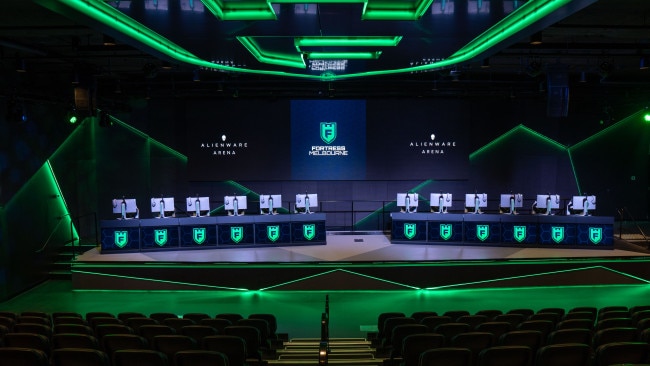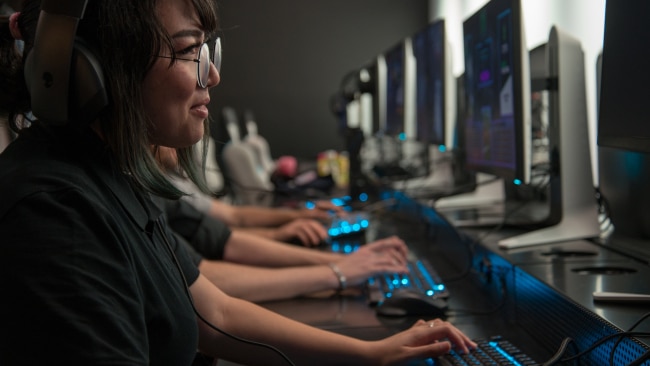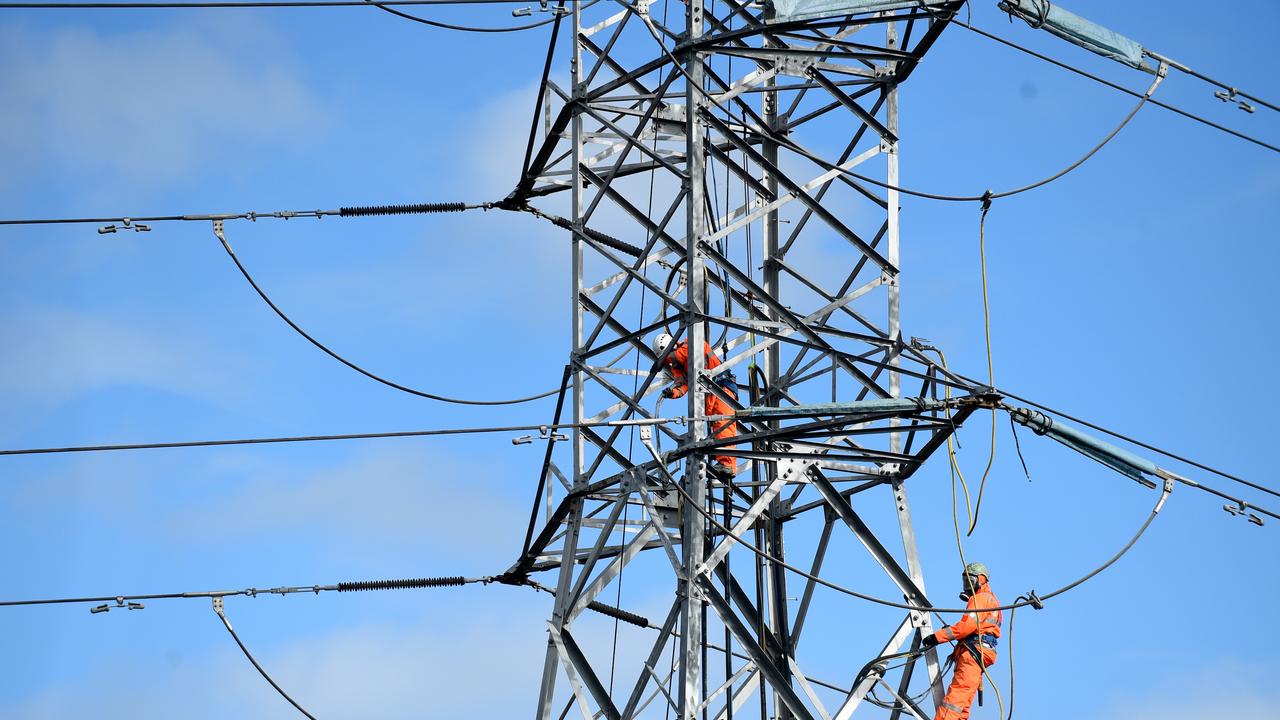What it took to build Australia’s biggest esports venue
Fortress Melbourne is Australia's leading esports and gaming attraction. It opened its doors a week before the lockdown. How does this multi-million dollar event space survive?

This article was created in partnership with Dell Technologies.
Ever since he was young, Jon Satterley loved video games. But on trips to shopping centres as an adult, he noticed the sort of entertainment offerings available wasn’t much different from what was around when he was a teenager in the 1980s.
“It’s like no one really seems to have reinvented what social entertainment should be like for millennials and Gen Z,” Mr Satterley says. “I just thought: ‘This has got to change.’” And so he set about being the one to change it.
Mr Satterley is the founder of Fortress, an esports and gaming venue in the Emporium Melbourne shopping centre. Fortress is a one-of-a-kind experience in Australia. It is, as Mr Satterley puts it, “a cathedral for gamers,” where visitors can game in a social environment, using the world’s best Alienware Aurora PCs.
At over 2700sq m, there’s much to explore inside Fortress. The feather in the venue’s cap is its enormous, state-of-the-art esports arena that comes complete with a 200-seat grandstand and production area, enabling it to host and broadcast large esports tournaments.

But that’s not all. Fortress is also home to a 60 PC LAN lounge with Alienware PCs, a hi-tech function room, a bar and a 220-seat restaurant with five VIP booths. They even have their own beer brand, Fortress Lager. It’s the sort of place you can spend an entire weekend in and still not be ready to leave.
“I always felt that one thing that was missing in Australia was that there was no home for gamers and esports,” Mr Satterley says. “I wanted to create a different kind of entertainment experience.”
Bringing Fortress to life was a mammoth undertaking.
“It took two-and-a-half years from the first hand-drawn sketches that I did,” Mr Satterley says. Fortress is a custom-built venue, meaning Mr Satterley and his team worked “day and night” with architects to create a space designed precisely to their requirements.
And to ensure he had the best backend equipment and hardware — including top-of-the-line Alienware Aurora PCs with Legend ID design, RGB keyboards, gaming mice and headsets — Mr Satterley had Fortress powered by Dell. The choice was easy: “I wanted the best PC gaming brand in the world in my venue, and they had it,” he says.
“There’s always a problem when you’re running a venue like this that people say, ‘Well, why would I go to your joint to rent a PC to play video games when I’ve got a computer at home?’ And I knew that the best way to tackle that argument was to say, ‘Yeah, you’ve got a computer at home, but I bet it’s not as good as this computer,’” Mr Satterley says.
But not everything went off without a hitch. Fortress opened to the public on March 13, pulling in 2500 people on its opening weekend. Then, four days later, new social distancing requirements forced it to close.
Quickly, Mr Satterley and his team worked out a way to move ahead.
“We decided that the way forward for us was what we called it ‘the triage project’,” he says. Mr Satterley explains that in the madness of preparing to open the venue, there were elements of the experience they hadn’t yet perfected.
“There were stacks of things where if we’d had the time, we would have given them more attention,” he says. “And now we suddenly had the time.”
He says that since Fortress closed its doors, they have “tweaked, fixed, improved or polished up” over 750 different items around the venue. The result is an even better space that they can’t wait to show off.
Fortress also began running online events.
“I don’t like to use the word ‘pivot’ because it was always in our repertoire, but we refocused on the digital space,” Mr Satterley says. “We said, we’ve already got all this great AV equipment and broadcast stuff, so let’s actually make it work.”
The team began using Fortress’s infrastructure to pull off some “pretty spectacular” online esports tournaments, including one for the Oceania edition of a hyped new game, Valorant.
“We thought we were a physical venue. Then we realised that actually, being the home for gamers doesn’t have to mean just being the physical home,” Mr Satterley says. He and his team realised they could still stick to their mission fostering live social gaming differently.
But they couldn’t have done it without Dell, Mr Satterley says.

“Their willingness to support us through this tough time has been one of the reasons we’ve been able to survive, if not the main reason. And it’s been great.”
He’s optimistic about the future.
“We can now say that as a team, we’re stronger than we’ve ever been. As a venue, we’re way better than when we opened. And we’ve built a new pillar of the business, which is this online initiative.”
For now, Fortress is focusing on more digital events. But what Mr Satterley is most looking forward to is the day he can reopen the Melbourne venue.
“I haven’t drunk a beer since pretty much the day we closed,” he says. “I said, ‘I’m not going to drink another beer until we reopen. I want to have a Fortress Lager in our venue when we’re open again, as a celebration.”
“So that’ll be fun,” he laughs.
To celebrate Small Business Month and the resilience, innovation and creativity of small business, Dell Technologies is proud to bring you inspiring stories of Australian businesses. We have a team of expert advisors ready to help with advice and tailored solutions to keep your small business ready for what’s next.
Win $10,000 worth of Dell Technologies products and equipment, and $20,000 worth of media exposure for your small business. Enter here



